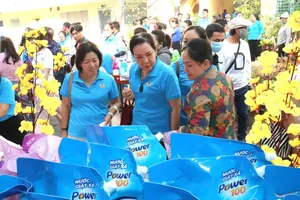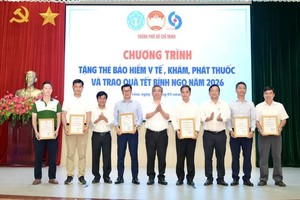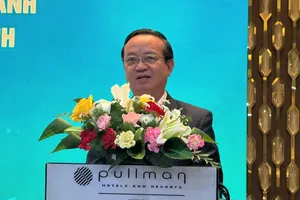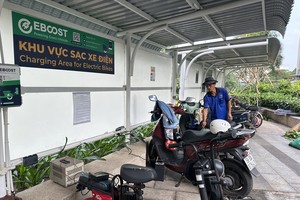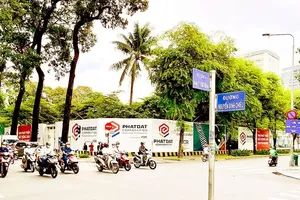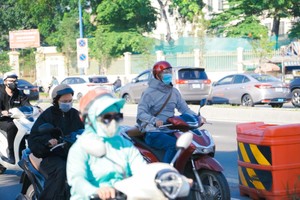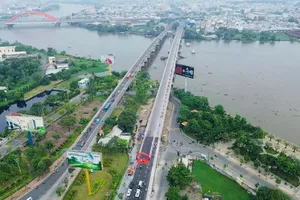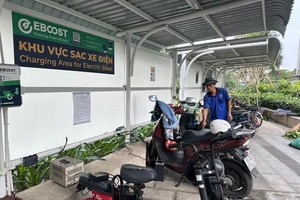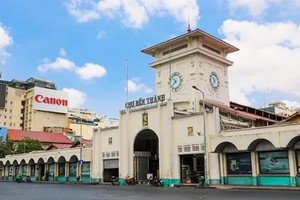Numerous waste treatment companies in Ho Chi Minh City have been suspended or had their licenses withdrawn for infringing on environmental regulations, causing a further shortage of treatment plants and thus leading other companies to hike their treatment fees sharply.
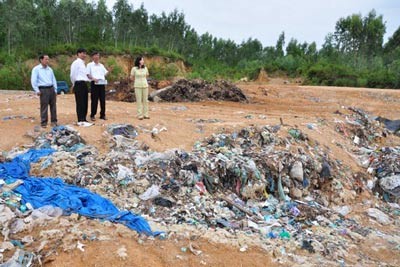
Local authorities investigate a solid waste treatment site of Dung Quat Industrial Park in Binh Son District, Quang Ngai Province. (Photo:SGGP)
The city and other provinces, which are home to many polluting factories, have not invested much in waste treatment systems and are now facing a severe lack of options when it comes to treating waste.
HCMC has over 30,000 enterprises that produce 300 tons of dangerous waste a day, while it has only 20 companies to collect and treat the waste at a capacity of 20-30 tons per day.
Worse yet, Dong Nai, Binh Duong, Long An and Vinh Long provinces have no treatment facilities at all. Therefore, HCMC companies treat factory waste from these localities as well, even though some are not licensed to do so.
The city’s Natural Resource and Environment Department has recently begun suspending several waste transport and treatment businesses that continually violate environmental regulations.
Tan Phuong Dong Environment Treatment, Trade and Service Company, for instance, has just had its license withdrawn and was fined VND25 million for unscrupulously obtaining a waste treatment license from the department and for treating waste from factories in other provinces while it was only licensed to treat HCMC waste.
But the suspensions have led to a more serious shortage of treatment plants and thus other companies, who are still licensed to operate, have taken advantage of the situation to raise treatment fees.
The fees have soared twofold in HCMC and threefold in provinces to VND4-12 million per ton of waste.
Huynh Minh Nhut, director of the HCMC Urban Environment Company, one of the city’s leading waste treatment enterprises, said that since the company has delayed putting its treatment plant into operation until May, treatment fees at other facilities have skyrocketed.
Since many businesses can’t afford the price hike, they have resorted to dumping their waste in open spaces on the city’s outskirts or stashing it in their factories until a convenient time to dispose of it elsewhere.
The Natural Resource and Environment Department recently convened a meeting with local waste treatment companies to ask them to increase their capacities for collecting and treating waste. The meeting also discussed setting a price cap for treatment fees.
Many enterprises opposed the idea, saying that the price hike merely reflects the law of supply and demand.
A representative of Tung Nguyen treatment company said his enterprise can’t expand its current treatment factory in Le Minh Xuan Industrial Park due to the limited space.
He said the company bought 2,000 square meters of land in Binh Chanh District to build a new treatment facility but the district People’s Committee hasn’t allowed construction to go ahead as it doesn’t fall in line with the district’s urban planning.
Other companies said they too have faced difficulties in finding space to build further treatment plants since local authorities have refused to license construction projects.

